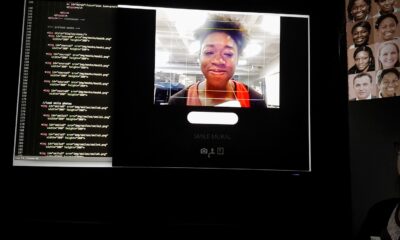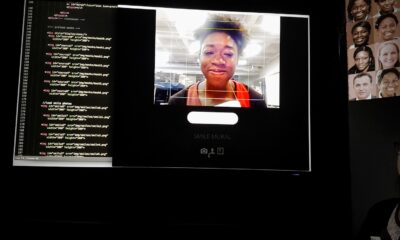Science
AI Solutions Poised to Transform Patient Care in Hospitals

The healthcare sector is exploring innovative solutions to address a critical patient-care crisis, with a focus on AI-enabled tools. Companies like Microsoft and Andor Health are leading the charge, showcasing early successes with their platform, ThinkAndor®, in collaboration with Sentara Health.
Hospitals across the United States are grappling with significant challenges. Increasing patient demand, coupled with a shrinking clinical workforce, has put immense pressure on healthcare systems. Reports indicate longer wait times, higher instances of clinician burnout, and a notable decrease in nursing hours available. Factors such as behavioral health needs and chronic diseases exacerbate these challenges, highlighting the urgent need for reform.
In response, many health systems are turning to technology to alleviate operational burdens. By leveraging AI, hospitals aim to streamline documentation processes, improve care coordination, and extend the capabilities of clinical staff. This shift marks a departure from viewing AI solely as a replacement for human labor. Instead, healthcare organizations are beginning to see the potential of virtual support systems and ambient technologies to enhance existing teams.
Transformative Potential of AI in Nursing
One notable example involves Sentara Health, one of the largest not-for-profit integrated health systems in the U.S. Earlier this year, Sentara expanded its partnership with Andor Health by licensing ThinkAndor®. The objective is to enhance virtual care across 12 hospitals and support approximately 34,000 employees. Under the leadership of Raj Toleti, Andor Health has developed tools aimed at lessening the administrative burden on nursing teams, including features that extract data from electronic medical records and enable real-time documentation through voice and natural-language interfaces.
Since integrating ThinkAndor®, Sentara Health has reported significant operational improvements. The platform has facilitated over 44,000 virtual nursing sessions and delivered more than 11,000 hours of virtual assistance to frontline staff. Notably, nearly 18% of system-wide discharges now occur before 1 p.m., indicating a positive shift in operational efficiency.
The collaborative efforts between Andor Health’s product teams, including Pritesh and Srini Surendranath, have ensured that the technology aligns seamlessly with each facility’s workflows. Sentara attributes the activation of 1,742 beds and the return of thousands of nursing hours to both the redesign of workflows and the integration of virtual care solutions.
Future Directions and Industry Insights
As the healthcare sector continues to face unprecedented operational challenges, the potential of AI-enabled virtual nursing models is gaining traction. Other health systems are closely observing the Sentara case study, considering how similar digital tools might be implemented to stabilize their own workforces.
The upcoming ThinkAI Conference, scheduled for November 16-19, 2023, in Orlando, will further explore these topics. Hospital executives, virtual nursing leaders, developers, and AI researchers will come together to discuss the role of agentic and ambient systems in addressing capacity challenges. The conference will highlight early findings from adopters like Sentara and analyze how health systems are integrating AI to improve care coordination, reduce documentation friction, and expand the reach of clinical teams.
As healthcare providers navigate this evolving landscape, it becomes increasingly clear that AI is not a distant prospect but a practical solution. The focus now shifts to how these early models can be scaled, standardized, and evaluated in the quest to resolve today’s pressing patient-care crisis.
-

 Politics2 weeks ago
Politics2 weeks agoSecwepemc First Nation Seeks Aboriginal Title Over Kamloops Area
-

 World4 months ago
World4 months agoScientists Unearth Ancient Antarctic Ice to Unlock Climate Secrets
-

 Entertainment4 months ago
Entertainment4 months agoTrump and McCormick to Announce $70 Billion Energy Investments
-

 Lifestyle4 months ago
Lifestyle4 months agoTransLink Launches Food Truck Program to Boost Revenue in Vancouver
-

 Science4 months ago
Science4 months agoFour Astronauts Return to Earth After International Space Station Mission
-

 Technology3 months ago
Technology3 months agoApple Notes Enhances Functionality with Markdown Support in macOS 26
-

 Top Stories1 month ago
Top Stories1 month agoUrgent Update: Fatal Crash on Highway 99 Claims Life of Pitt Meadows Man
-

 Sports4 months ago
Sports4 months agoSearch Underway for Missing Hunter Amid Hokkaido Bear Emergency
-

 Politics3 months ago
Politics3 months agoUkrainian Tennis Star Elina Svitolina Faces Death Threats Online
-

 Politics4 months ago
Politics4 months agoCarney Engages First Nations Leaders at Development Law Summit
-

 Technology4 months ago
Technology4 months agoFrosthaven Launches Early Access on July 31, 2025
-

 Top Stories4 weeks ago
Top Stories4 weeks agoFamily Remembers Beverley Rowbotham 25 Years After Murder




















